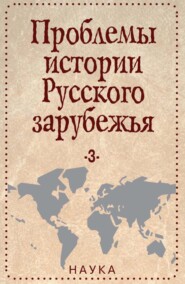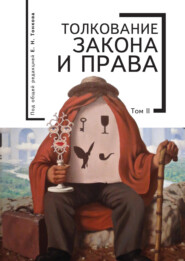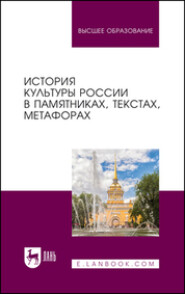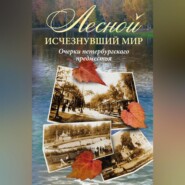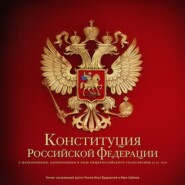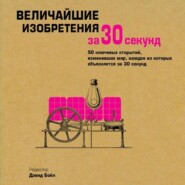По всем вопросам обращайтесь на: info@litportal.ru
(©) 2003-2024.
✖
33 лучших юмористических рассказа на английском / 33 Best Humorous Short Stories
Настройки чтения
Размер шрифта
Высота строк
Поля
The collection contained also most interesting relics. There were patents of nobility granted to my forefathers for daring and ingenious removals of pretenders to thrones, or occupants of them; stars, crosses and other decorations attesting services of the most secret and unmentionable character; miscellaneous gifts from the world’s greatest conspirators, representing an intrinsic money value beyond computation. There were robes, jewels, swords of honor, and every kind of ‘testimonials of esteem’; a king’s skull fashioned into a wine cup; the title deeds to vast estates, long alienated by confiscation, sale, or abandonment; an illuminated breviary that had belonged to Sir Aldebaran Turmore de Peters-Turmore of accursed memory; embalmed ears of several of the family’s most renowned enemies; the small intestine of a certain unworthy Italian statesman inimical to Turmores, which, twisted into a jumping rope, had served the youth of six kindred generations – mementoes and souvenirs precious beyond the appraisals of imagination, but by the sacred mandates of tradition and sentiment forever inalienable by sale or gift.
As the head of the family, I was custodian of all these priceless heirlooms, and for their safe keeping had constructed in the basement of my dwelling a strong-room of massive masonry, whose solid stone walls and single iron door could defy alike the earthquake’s shock, the tireless assaults of Time, and Cupidity’s unholy hand.
To this thesaurus of the soul, redolent of sentiment and tenderness, and rich in suggestions of crime, I now repaired for hints upon assassination. To my unspeakable astonishment and grief I found it empty! Every shelf, every chest, every coffer had been rifled. Of that unique and incomparable collection not a vestige remained! Yet I proved that until I had myself unlocked the massive metal door, not a bolt nor bar had been disturbed; the seals upon the lock had been intact.
I passed the night in alternate lamentation and research, equally fruitless, the mystery was impenetrable to conjecture, the pain invincible to balm. But never once throughout that dreadful night did my firm spirit relinquish its high design against Elizabeth Mary, and daybreak found me more resolute than before to harvest the fruits of my marriage. My great loss seemed but to bring me into nearer spiritual relations with my dead ancestors, and to lay upon me a new and more inevitable obedience to the suasion that spoke in every globule of my blood.
My plan of action was soon formed, and procuring a stout cord I entered my wife’s bedroom finding her, as I expected, in a sound sleep. Before she was awake, I had her bound fast, hand and foot. She was greatly surprised and pained, but heedless of her remonstrances, delivered in a high key, I carried her into the now rifled strong-room, which I had never suffered her to enter, and of whose treasures I had not apprised her. Seating her, still bound, in an angle of the wall, I passed the next two days and nights in conveying bricks and mortar to the spot, and on the morning of the third day had her securely walled in, from floor to ceiling. All this time I gave no further heed to her pleas for mercy than (on her assurance of non-resistance, which I am bound to say she honorably observed) to grant her the freedom of her limbs. The space allowed her was about four feet by six. As I inserted the last bricks of the top course, in contact with the ceiling of the strong-room, she bade me farewell with what I deemed the composure of despair, and I rested from my work, feeling that I had faithfully observed the traditions of an ancient and illustrious family. My only bitter reflection, so far as my own conduct was concerned, came of the consciousness that in the performance of my design I had labored; but this no living soul would ever know.
After a night’s rest I went to the Judge of the Court of Successions and Inheritances and made a true and sworn relation of all that I had done – except that I ascribed to a servant the manual labor of building the wall. His honor appointed a court commissioner, who made a careful examination of the work, and upon his report Elizabeth Mary Turmore was, at the end of a week, formally pronounced dead. By due process of law I was put into possession of her estate, and although this was not by hundreds of thousands of dollars as valuable as my lost treasures, it raised me from poverty to affluence and brought me the respect of the great and good.
Some six months after these events strange rumors reached me that the ghost of my deceased wife had been seen in several places about the country, but always at a considerable distance from Graymaulkin. These rumors, which I was unable to trace to any authentic source, differed widely in many particulars, but were alike in ascribing to the apparition a certain high degree of apparent worldly prosperity combined with an audacity most uncommon in ghosts. Not only was the spirit attired in most costly raiment, but it walked at noonday, and even drove! I was inexpressibly annoyed by these reports, and thinking there might be something more than superstition in the popular belief that only the spirits of the unburied dead still walk the earth, I took some workmen equipped with picks and crowbars into the now long unentered strong-room, and ordered them to demolish the brick wall that I had built about the partner of my joys. I was resolved to give the body of Elizabeth Mary such burial as I thought her immortal part might be willing to accept as an equivalent to the privilege of ranging at will among the haunts of the living.
In a few minutes we had broken down the wall and, thrusting a lamp through the breach, I looked in. Nothing! Not a bone, not a lock of hair, not a shred of clothing—the narrow space which, upon my affidavit, had been legally declared to hold all that was mortal of the late Mrs. Turmore was absolutely empty! This amazing disclosure, coming upon a mind already overwrought with too much of mystery and excitement, was more than I could bear. I shrieked aloud and fell in a fit. For months afterward I lay between life and death, fevered and delirious; nor did I recover until my physician had had the providence to take a case of valuable jewels from my safe and leave the country.
The next summer I had occasion to visit my wine cellar, in one corner of which I had built the now long disused strong-room. In moving a cask of Madeira I struck it with considerable force against the partition wall, and was surprised to observe that it displaced two large square stones forming a part of the wall.
Applying my hands to these, I easily pushed them out entirely, and looking through saw that they had fallen into the niche in which I had immured my lamented wife; facing the opening which their fall left, and at a distance of four feet, was the brickwork which my own hands had made for that unfortunate gentlewoman’s restraint. At this significant revelation I began a search of the wine cellar. Behind a row of casks I found four historically interesting but intrinsically valueless objects:
First, the mildewed remains of a ducal robe of state (Florentine) of the eleventh century; second, an illuminated vellum breviary with the name of Sir Aldebaran Turmore de Peters-Turmore inscribed in colors on the title page; third, a human skull fashioned into a drinking cup and deeply stained with wine; fourth, the iron cross of a Knight Commander of the Imperial Austrian Order of Assassins by Poison.
That was all – not an object having commercial value, no papers – nothing. But this was enough to clear up the mystery of the strong-room. My wife had early divined the existence and purpose of that apartment, and with the skill amounting to genius had effected an entrance by loosening the two stones in the wall.
Through that opening she had at several times abstracted the entire collection, which doubtless she had succeeded in converting into coin of the realm. When with an unconscious justice which deprives me of all satisfaction in the memory I decided to build her into the wall, by some malign fatality I selected that part of it in which were these movable stones, and doubtless before I had fairly finished my bricklaying she had removed them and, slipping through into the wine cellar, replaced them as they were originally laid. From the cellar she had easily escaped unobserved, to enjoy her infamous gains in distant parts. I have endeavored to procure a warrant, but the Lord High Baron of the Court of Indictment and Conviction reminds me that she is legally dead, and says my only course is to go before the Master in Cadavery and move for a writ of disinterment and constructive revival. So it looks as if I must suffer without redress this great wrong at the hands of a woman devoid alike of principle and shame.
Bret Harte
The Stolen Cigar Case
I found Hemlock Jones in the old Brook Street lodgings, musing before the fire. With the freedom of an old friend I at once threw myself in my usual familiar attitude at his feet, and gently caressed his boot. I was induced to do this for two reasons: one, that it enabled me to get a good look at his bent, concentrated face, and the other, that it seemed to indicate my reverence for his superhuman insight. So absorbed was he even then, in tracking some mysterious clue, that he did not seem to notice me. But therein I was wrong – as I always was in my attempt to understand that powerful intellect.
‘It is raining,’ he said, without lifting his head.
‘You have been out, then?’ I said quickly.
‘No. But I see that your umbrella is wet, and that your overcoat has drops of water on it.’
I sat aghast at his penetration. After a pause he said carelessly, as if dismissing the subject: ‘Besides, I hear the rain on the window. Listen.’
I listened. I could scarcely credit my ears, but there was the soft pattering of drops on the panes. It was evident there was no deceiving this man!
‘Have you been busy lately?’ I asked, changing the subject. ‘What new problem – given up by Scotland Yard as inscrutable – has occupied that gigantic intellect?’
He drew back his foot slightly, and seemed to hesitate ere he returned it to its original position. Then he answered wearily: ‘Mere trifles – nothing to speak of. The Prince Kupoli has been here to get my advice regarding the disappearance of certain rubies from the Kremlin; the Rajah of Pootibad, after vainly beheading his entire bodyguard, has been obliged to seek my assistance to recover a jeweled sword. The Grand Duchess of Pretzel-Brauntswig is desirous of discovering where her husband was on the night of February 14; and last night’ – he lowered his voice slightly – ‘a lodger in this very house, meeting me on the stairs, wanted to know why they didn’t answer his bell.’
I could not help smiling – until I saw a frown gathering on his inscrutable forehead.
‘Pray remember,’ he said coldly, ‘that it was through such an apparently trivial question that I found out Why Paul Ferroll Killed His Wife, and What Happened to Jones!’
I became dumb at once. He paused for a moment, and then suddenly changing back to his usual pitiless, analytical style, he said: ‘When I say these are trifles, they are so in comparison to an affair that is now before me. A crime has been committed, – and, singularly enough, against myself. You start,’ he said. ‘You wonder who would have dared to attempt it. So did I; nevertheless, it has been done. I have been ROBBED!’
‘YOU robbed! You, Hemlock Jones, the Terror of Peculators!’ I gasped in amazement, arising and gripping the table as I faced him.
‘Yes! Listen. I would confess it to no other. But YOU who have followed my career, who know my methods; you, for whom I have partly lifted the veil that conceals my plans from ordinary humanity, – you, who have for years rapturously accepted my confidences, passionately admired my inductions and inferences, placed yourself at my beck and call, become my slave, groveled at my feet, given up your practice except those few unremunerative and rapidly decreasing patients to whom, in moments of abstraction over MY problems, you have administered strychnine for quinine and arsenic for Epsom salts; you, who have sacrificed anything and everybody to me, – YOU I make my confidant!’
I arose and embraced him warmly, yet he was already so engrossed in thought that at the same moment he mechanically placed his hand upon his watch chain as if to consult the time. ‘Sit down,’ he said. ‘Have a cigar?’
‘I have given up cigar smoking,’ I said.
‘Why?’ he asked.
I hesitated, and perhaps colored. I had really given it up because, with my diminished practice, it was too expensive. I could afford only a pipe. ‘I prefer a pipe,’ I said laughingly. ‘But tell me of this robbery. What have you lost?’
He arose, and planting himself before the fire with his hands under his coattails, looked down upon me reflectively for a moment. ‘Do you remember the cigar case presented to me by the Turkish Ambassador for discovering the missing favorite of the Grand Vizier in the fifth chorus girl at the Hilarity Theatre? It was that one. I mean the cigar case. It was incrusted with diamonds.’
‘And the largest one had been supplanted by paste,’ I said.
‘Ah,’ he said, with a reflective smile, ‘you know that?’
‘You told me yourself. I remember considering it a proof of your extraordinary perception. But, by Jove, you don’t mean to say you have lost it?’
He was silent for a moment. ‘No; it has been stolen, it is true, but I shall still find it. And by myself alone! In your profession, my dear fellow, when a member is seriously ill, he does not prescribe for himself, but calls in a brother doctor. Therein we differ. I shall take this matter in my own hands.’
‘And where could you find better?’ I said enthusiastically. ‘I should say the cigar case is as good as recovered already.’
‘I shall remind you of that again,’ he said lightly. ‘And now, to show you my confidence in your judgment, in spite of my determination to pursue this alone, I am willing to listen to any suggestions from you.’
He drew a memorandum book from his pocket and, with a grave smile, took up his pencil.
I could scarcely believe my senses. He, the great Hemlock Jones, accepting suggestions from a humble individual like myself! I kissed his hand reverently, and began in a joyous tone:
‘First, I should advertise, offering a reward; I should give the same intimation in hand-bills, distributed at the ‘pubs’ and the pastry-cooks’. I should next visit the different pawnbrokers; I should give notice at the police station. I should examine the servants. I should thoroughly search the house and my own pockets. I speak relatively,’ I added, with a laugh. ‘Of course I mean YOUR own.’
He gravely made an entry of these details.
‘Perhaps,’ I added, ‘you have already done this?’
‘Perhaps,’ he returned enigmatically. ‘Now, my dear friend,’ he continued, putting the note-book in his pocket and rising, ‘would you excuse me for a few moments? Make yourself perfectly at home until I return; there may be some things,’ he added with a sweep of his hand toward his heterogeneously filled shelves, ‘that may interest you and while away the time. There are pipes and tobacco in that corner.’
Then nodding to me with the same inscrutable face he left the room. I was too well accustomed to his methods to think much of his unceremonious withdrawal, and made no doubt he was off to investigate some clue which had suddenly occurred to his active intelligence.
Left to myself I cast a cursory glance over his shelves. There were a number of small glass jars containing earthy substances, labeled ‘Pavement and Road Sweepings,’ from the principal thoroughfares and suburbs of London, with the sub-directions ‘for identifying foot-tracks.’ There were several other jars, labeled ‘Fluff from Omnibus and Road Car Seats,’ ‘Cocoanut Fibre and Rope Strands from Mattings in Public Places,’ ‘Cigarette Stumps and Match Ends from Floor of Palace Theatre, Row A, 1 to 50.’ Everywhere were evidences of this wonderful man’s system and perspicacity.
I was thus engaged when I heard the slight creaking of a door, and I looked up as a stranger entered. He was a rough-looking man, with a shabby overcoat and a still more disreputable muffler around his throat and the lower part of his face. Considerably annoyed at his intrusion, I turned upon him rather sharply, when, with a mumbled, growling apology for mistaking the room, he shuffled out again and closed the door. I followed him quickly to the landing and saw that he disappeared down the stairs. With my mind full of the robbery, the incident made a singular impression upon me. I knew my friend’s habit of hasty absences from his room in his moments of deep inspiration; it was only too probable that, with his powerful intellect and magnificent perceptive genius concentrated on one subject, he should be careless of his own belongings, and no doubt even forget to take the ordinary precaution of locking up his drawers. I tried one or two and found that I was right, although for some reason I was unable to open one to its fullest extent. The handles were sticky, as if some one had opened them with dirty fingers. Knowing Hemlock’s fastidious cleanliness, I resolved to inform him of this circumstance, but I forgot it, alas! until – but I am anticipating my story.
His absence was strangely prolonged. I at last seated myself by the fire, and lulled by warmth and the patter of the rain on the window, I fell asleep. I may have dreamt, for during my sleep I had a vague semi-consciousness as of hands being softly pressed on my pockets – no doubt induced by the story of the robbery. When I came fully to my senses, I found Hemlock Jones sitting on the other side of the hearth, his deeply concentrated gaze fixed on the fire.
‘I found you so comfortably asleep that I could not bear to awaken you,’ he said, with a smile.
As the head of the family, I was custodian of all these priceless heirlooms, and for their safe keeping had constructed in the basement of my dwelling a strong-room of massive masonry, whose solid stone walls and single iron door could defy alike the earthquake’s shock, the tireless assaults of Time, and Cupidity’s unholy hand.
To this thesaurus of the soul, redolent of sentiment and tenderness, and rich in suggestions of crime, I now repaired for hints upon assassination. To my unspeakable astonishment and grief I found it empty! Every shelf, every chest, every coffer had been rifled. Of that unique and incomparable collection not a vestige remained! Yet I proved that until I had myself unlocked the massive metal door, not a bolt nor bar had been disturbed; the seals upon the lock had been intact.
I passed the night in alternate lamentation and research, equally fruitless, the mystery was impenetrable to conjecture, the pain invincible to balm. But never once throughout that dreadful night did my firm spirit relinquish its high design against Elizabeth Mary, and daybreak found me more resolute than before to harvest the fruits of my marriage. My great loss seemed but to bring me into nearer spiritual relations with my dead ancestors, and to lay upon me a new and more inevitable obedience to the suasion that spoke in every globule of my blood.
My plan of action was soon formed, and procuring a stout cord I entered my wife’s bedroom finding her, as I expected, in a sound sleep. Before she was awake, I had her bound fast, hand and foot. She was greatly surprised and pained, but heedless of her remonstrances, delivered in a high key, I carried her into the now rifled strong-room, which I had never suffered her to enter, and of whose treasures I had not apprised her. Seating her, still bound, in an angle of the wall, I passed the next two days and nights in conveying bricks and mortar to the spot, and on the morning of the third day had her securely walled in, from floor to ceiling. All this time I gave no further heed to her pleas for mercy than (on her assurance of non-resistance, which I am bound to say she honorably observed) to grant her the freedom of her limbs. The space allowed her was about four feet by six. As I inserted the last bricks of the top course, in contact with the ceiling of the strong-room, she bade me farewell with what I deemed the composure of despair, and I rested from my work, feeling that I had faithfully observed the traditions of an ancient and illustrious family. My only bitter reflection, so far as my own conduct was concerned, came of the consciousness that in the performance of my design I had labored; but this no living soul would ever know.
After a night’s rest I went to the Judge of the Court of Successions and Inheritances and made a true and sworn relation of all that I had done – except that I ascribed to a servant the manual labor of building the wall. His honor appointed a court commissioner, who made a careful examination of the work, and upon his report Elizabeth Mary Turmore was, at the end of a week, formally pronounced dead. By due process of law I was put into possession of her estate, and although this was not by hundreds of thousands of dollars as valuable as my lost treasures, it raised me from poverty to affluence and brought me the respect of the great and good.
Some six months after these events strange rumors reached me that the ghost of my deceased wife had been seen in several places about the country, but always at a considerable distance from Graymaulkin. These rumors, which I was unable to trace to any authentic source, differed widely in many particulars, but were alike in ascribing to the apparition a certain high degree of apparent worldly prosperity combined with an audacity most uncommon in ghosts. Not only was the spirit attired in most costly raiment, but it walked at noonday, and even drove! I was inexpressibly annoyed by these reports, and thinking there might be something more than superstition in the popular belief that only the spirits of the unburied dead still walk the earth, I took some workmen equipped with picks and crowbars into the now long unentered strong-room, and ordered them to demolish the brick wall that I had built about the partner of my joys. I was resolved to give the body of Elizabeth Mary such burial as I thought her immortal part might be willing to accept as an equivalent to the privilege of ranging at will among the haunts of the living.
In a few minutes we had broken down the wall and, thrusting a lamp through the breach, I looked in. Nothing! Not a bone, not a lock of hair, not a shred of clothing—the narrow space which, upon my affidavit, had been legally declared to hold all that was mortal of the late Mrs. Turmore was absolutely empty! This amazing disclosure, coming upon a mind already overwrought with too much of mystery and excitement, was more than I could bear. I shrieked aloud and fell in a fit. For months afterward I lay between life and death, fevered and delirious; nor did I recover until my physician had had the providence to take a case of valuable jewels from my safe and leave the country.
The next summer I had occasion to visit my wine cellar, in one corner of which I had built the now long disused strong-room. In moving a cask of Madeira I struck it with considerable force against the partition wall, and was surprised to observe that it displaced two large square stones forming a part of the wall.
Applying my hands to these, I easily pushed them out entirely, and looking through saw that they had fallen into the niche in which I had immured my lamented wife; facing the opening which their fall left, and at a distance of four feet, was the brickwork which my own hands had made for that unfortunate gentlewoman’s restraint. At this significant revelation I began a search of the wine cellar. Behind a row of casks I found four historically interesting but intrinsically valueless objects:
First, the mildewed remains of a ducal robe of state (Florentine) of the eleventh century; second, an illuminated vellum breviary with the name of Sir Aldebaran Turmore de Peters-Turmore inscribed in colors on the title page; third, a human skull fashioned into a drinking cup and deeply stained with wine; fourth, the iron cross of a Knight Commander of the Imperial Austrian Order of Assassins by Poison.
That was all – not an object having commercial value, no papers – nothing. But this was enough to clear up the mystery of the strong-room. My wife had early divined the existence and purpose of that apartment, and with the skill amounting to genius had effected an entrance by loosening the two stones in the wall.
Through that opening she had at several times abstracted the entire collection, which doubtless she had succeeded in converting into coin of the realm. When with an unconscious justice which deprives me of all satisfaction in the memory I decided to build her into the wall, by some malign fatality I selected that part of it in which were these movable stones, and doubtless before I had fairly finished my bricklaying she had removed them and, slipping through into the wine cellar, replaced them as they were originally laid. From the cellar she had easily escaped unobserved, to enjoy her infamous gains in distant parts. I have endeavored to procure a warrant, but the Lord High Baron of the Court of Indictment and Conviction reminds me that she is legally dead, and says my only course is to go before the Master in Cadavery and move for a writ of disinterment and constructive revival. So it looks as if I must suffer without redress this great wrong at the hands of a woman devoid alike of principle and shame.
Bret Harte
The Stolen Cigar Case
I found Hemlock Jones in the old Brook Street lodgings, musing before the fire. With the freedom of an old friend I at once threw myself in my usual familiar attitude at his feet, and gently caressed his boot. I was induced to do this for two reasons: one, that it enabled me to get a good look at his bent, concentrated face, and the other, that it seemed to indicate my reverence for his superhuman insight. So absorbed was he even then, in tracking some mysterious clue, that he did not seem to notice me. But therein I was wrong – as I always was in my attempt to understand that powerful intellect.
‘It is raining,’ he said, without lifting his head.
‘You have been out, then?’ I said quickly.
‘No. But I see that your umbrella is wet, and that your overcoat has drops of water on it.’
I sat aghast at his penetration. After a pause he said carelessly, as if dismissing the subject: ‘Besides, I hear the rain on the window. Listen.’
I listened. I could scarcely credit my ears, but there was the soft pattering of drops on the panes. It was evident there was no deceiving this man!
‘Have you been busy lately?’ I asked, changing the subject. ‘What new problem – given up by Scotland Yard as inscrutable – has occupied that gigantic intellect?’
He drew back his foot slightly, and seemed to hesitate ere he returned it to its original position. Then he answered wearily: ‘Mere trifles – nothing to speak of. The Prince Kupoli has been here to get my advice regarding the disappearance of certain rubies from the Kremlin; the Rajah of Pootibad, after vainly beheading his entire bodyguard, has been obliged to seek my assistance to recover a jeweled sword. The Grand Duchess of Pretzel-Brauntswig is desirous of discovering where her husband was on the night of February 14; and last night’ – he lowered his voice slightly – ‘a lodger in this very house, meeting me on the stairs, wanted to know why they didn’t answer his bell.’
I could not help smiling – until I saw a frown gathering on his inscrutable forehead.
‘Pray remember,’ he said coldly, ‘that it was through such an apparently trivial question that I found out Why Paul Ferroll Killed His Wife, and What Happened to Jones!’
I became dumb at once. He paused for a moment, and then suddenly changing back to his usual pitiless, analytical style, he said: ‘When I say these are trifles, they are so in comparison to an affair that is now before me. A crime has been committed, – and, singularly enough, against myself. You start,’ he said. ‘You wonder who would have dared to attempt it. So did I; nevertheless, it has been done. I have been ROBBED!’
‘YOU robbed! You, Hemlock Jones, the Terror of Peculators!’ I gasped in amazement, arising and gripping the table as I faced him.
‘Yes! Listen. I would confess it to no other. But YOU who have followed my career, who know my methods; you, for whom I have partly lifted the veil that conceals my plans from ordinary humanity, – you, who have for years rapturously accepted my confidences, passionately admired my inductions and inferences, placed yourself at my beck and call, become my slave, groveled at my feet, given up your practice except those few unremunerative and rapidly decreasing patients to whom, in moments of abstraction over MY problems, you have administered strychnine for quinine and arsenic for Epsom salts; you, who have sacrificed anything and everybody to me, – YOU I make my confidant!’
I arose and embraced him warmly, yet he was already so engrossed in thought that at the same moment he mechanically placed his hand upon his watch chain as if to consult the time. ‘Sit down,’ he said. ‘Have a cigar?’
‘I have given up cigar smoking,’ I said.
‘Why?’ he asked.
I hesitated, and perhaps colored. I had really given it up because, with my diminished practice, it was too expensive. I could afford only a pipe. ‘I prefer a pipe,’ I said laughingly. ‘But tell me of this robbery. What have you lost?’
He arose, and planting himself before the fire with his hands under his coattails, looked down upon me reflectively for a moment. ‘Do you remember the cigar case presented to me by the Turkish Ambassador for discovering the missing favorite of the Grand Vizier in the fifth chorus girl at the Hilarity Theatre? It was that one. I mean the cigar case. It was incrusted with diamonds.’
‘And the largest one had been supplanted by paste,’ I said.
‘Ah,’ he said, with a reflective smile, ‘you know that?’
‘You told me yourself. I remember considering it a proof of your extraordinary perception. But, by Jove, you don’t mean to say you have lost it?’
He was silent for a moment. ‘No; it has been stolen, it is true, but I shall still find it. And by myself alone! In your profession, my dear fellow, when a member is seriously ill, he does not prescribe for himself, but calls in a brother doctor. Therein we differ. I shall take this matter in my own hands.’
‘And where could you find better?’ I said enthusiastically. ‘I should say the cigar case is as good as recovered already.’
‘I shall remind you of that again,’ he said lightly. ‘And now, to show you my confidence in your judgment, in spite of my determination to pursue this alone, I am willing to listen to any suggestions from you.’
He drew a memorandum book from his pocket and, with a grave smile, took up his pencil.
I could scarcely believe my senses. He, the great Hemlock Jones, accepting suggestions from a humble individual like myself! I kissed his hand reverently, and began in a joyous tone:
‘First, I should advertise, offering a reward; I should give the same intimation in hand-bills, distributed at the ‘pubs’ and the pastry-cooks’. I should next visit the different pawnbrokers; I should give notice at the police station. I should examine the servants. I should thoroughly search the house and my own pockets. I speak relatively,’ I added, with a laugh. ‘Of course I mean YOUR own.’
He gravely made an entry of these details.
‘Perhaps,’ I added, ‘you have already done this?’
‘Perhaps,’ he returned enigmatically. ‘Now, my dear friend,’ he continued, putting the note-book in his pocket and rising, ‘would you excuse me for a few moments? Make yourself perfectly at home until I return; there may be some things,’ he added with a sweep of his hand toward his heterogeneously filled shelves, ‘that may interest you and while away the time. There are pipes and tobacco in that corner.’
Then nodding to me with the same inscrutable face he left the room. I was too well accustomed to his methods to think much of his unceremonious withdrawal, and made no doubt he was off to investigate some clue which had suddenly occurred to his active intelligence.
Left to myself I cast a cursory glance over his shelves. There were a number of small glass jars containing earthy substances, labeled ‘Pavement and Road Sweepings,’ from the principal thoroughfares and suburbs of London, with the sub-directions ‘for identifying foot-tracks.’ There were several other jars, labeled ‘Fluff from Omnibus and Road Car Seats,’ ‘Cocoanut Fibre and Rope Strands from Mattings in Public Places,’ ‘Cigarette Stumps and Match Ends from Floor of Palace Theatre, Row A, 1 to 50.’ Everywhere were evidences of this wonderful man’s system and perspicacity.
I was thus engaged when I heard the slight creaking of a door, and I looked up as a stranger entered. He was a rough-looking man, with a shabby overcoat and a still more disreputable muffler around his throat and the lower part of his face. Considerably annoyed at his intrusion, I turned upon him rather sharply, when, with a mumbled, growling apology for mistaking the room, he shuffled out again and closed the door. I followed him quickly to the landing and saw that he disappeared down the stairs. With my mind full of the robbery, the incident made a singular impression upon me. I knew my friend’s habit of hasty absences from his room in his moments of deep inspiration; it was only too probable that, with his powerful intellect and magnificent perceptive genius concentrated on one subject, he should be careless of his own belongings, and no doubt even forget to take the ordinary precaution of locking up his drawers. I tried one or two and found that I was right, although for some reason I was unable to open one to its fullest extent. The handles were sticky, as if some one had opened them with dirty fingers. Knowing Hemlock’s fastidious cleanliness, I resolved to inform him of this circumstance, but I forgot it, alas! until – but I am anticipating my story.
His absence was strangely prolonged. I at last seated myself by the fire, and lulled by warmth and the patter of the rain on the window, I fell asleep. I may have dreamt, for during my sleep I had a vague semi-consciousness as of hands being softly pressed on my pockets – no doubt induced by the story of the robbery. When I came fully to my senses, I found Hemlock Jones sitting on the other side of the hearth, his deeply concentrated gaze fixed on the fire.
‘I found you so comfortably asleep that I could not bear to awaken you,’ he said, with a smile.






